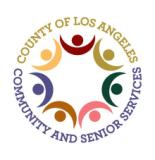What would you like to do today?
Programs and Services
Caring for an older adult or person with a disability is a significant and, sometimes, challenging role. Research shows that caregivers often ignore their own physical and emotional health. Caregiver support groups offer caregivers a way to share and draw support from others with similar experiences.
What Happens in a Support Group?
In most support groups, a health professional facilitates the group and caregivers talk about their problems and listen to others talk; you'll not only get help, but you'll also be able to help others. Most importantly, you'll find out that you're not alone. It could be helpful knowing that other people are in the same situation and their knowledge can be invaluable, especially if they’re caring for someone with the same illness or diagnosis.
What are the Types of Support Groups?
There are types kinds of support groups: Community Support Groups
- • Generally held at the same place on a certain the day of the week or month
- • People live near one another in a local area
- • Provide face-to-face contact
- • As a caregiver – you will get out into the community to attend the meetings and reduce feelings of isolation
- • Meet online through emails, message boards, or websites
- • They can be accessed at any time it is convenient
- • Never have to leave the home
- • May be especially valuable if your family member has a rare diagnosis or illness
Is There a Cost to Attend a Support Group?
The most common type of support group is provided at no cost. Many support groups for caregivers of older adults and people with disabilities are held in health facilities. Others may be held at churches or senior centers.
